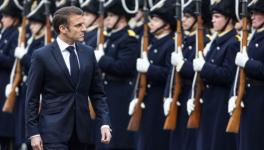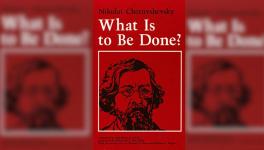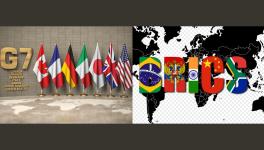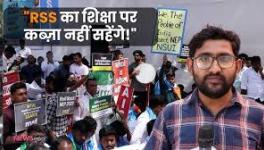A Cry of Warning for Europe
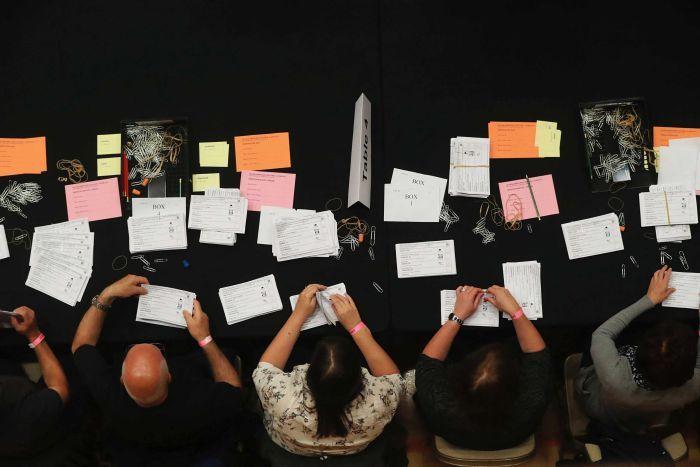
Image Courtesy: abc.net.au
The Austrian elections show clearly that media have given up on contextualising events. To do that, calls for a warning about Europe’s future, as a vehicle of European values is required. Europe has been weakened by all the recent elections, with the notable exception of France. Common to all, France included, were some clear trends, that we will hastily, and therefore maybe imperfectly, examine.
The decline of the traditional parties. In every election, since the financial crisis of 2009, the parties we have known to run their country since the end of the Second World War, are on the wane ( or practically disappearing, like in the last French elections). In Austria, the far right FPO secured 26 per cent of the vote, just a few votes behind the Social Democrats who took 26.9 per cent of the votes. The social democrats have been in power practically since the end of the war. And the other traditional party, the conservative OVP, won the elections with 31.5 per cent. Together the two parties used to have more than 85% of the votes. In the Dutch elections held in March, Geert Wilder’s far-right PVV, came second after the ruling VVD, at the expense of all other parties. And in September in Germany, the far right anti immigrant AfD enjoyed historical success, becoming the third party while the two traditional parties, Merkel’s CDU and the social democrat SPD, suffered the worst results in more than a half a century. According to polls, next year Italian elections will see a populist movement, with the 5 Stars taking over the government.
Austria is the best example to understand how European national politics have changed. It is important to note that no right wing party was really visible in Europe, (except Le Pen in France), before the financial crisis of 2009. That crisis brought insecurity and fear and in the same year the Austrian far right, under the charismatic leadership of Jorg Haider, got the same percentage of votes as of today. And the conservative Prime minister of the time, Wolfgang Schlussel broke a taboo by bringing the Freedom Party into the government. Everybody in Europe reacted with horror, practically isolating Austria. And the FPO, lost all its lustre in the government, going down to 5%, and with the death of Haider even further down. There Are no gasps of horror now in Europe over any far right wing parties getting in to govern.
What has fuelled the decline of the traditional parties
The traditional parties were facing already a loss of participation and trust by the electors at the end of the last century but in 2009 Europe imported the financial crisis which racked the US in 2006. And, 2009 saw hardship and unemployment all over Europe. And that year Greece became the battleground of two visions in Europe. The Southern countries wanted to push out of the crisis with investments and social relief, while the bloc of Northern countries, led by Germany, saw austerity as the only response. Germany wanted to export it’s experience: they were doing well thanks to an internal austerity reform started by Schroeder in 2003, and they did not want to take on other reforms at any cost.
Greece was just 4% of the European economy and could have been rescued without problems. But the German line won and today Greece has lost 25% of its properties; pensions went down by 17%, and there is a massive unemployment. Austerity was the response to the crisis for all of Europe and that aggravated fear and insecurity.
It is also important to remember that until the invasions of Libya, Iraq and Syria, in which Europe played a key role (2011- 2014), there were few immigrants and this was not a problem. In 2010, immigrants numbered 215.000, in a region of 400 millions. But during the invasions, a very fragile balance between Shite and Sunni, the two main religious branches of Islam, collapsed. Civil war, and the creation of ISIS in 2015 pushed many to try to reach Europe to escape the civil wars. So, in 2015 more than 1.2 million refugees, the majority coming from countries in conflict, arrived in Europe, which was not prepared for such a massive influx. And, if we study the elections before then, we can see that the far right parties were not as relevant as they are now.
Therefore it should be clear that austerity and immigration have been the two main factors for the rise of the right wing. Statistics and data show that clearly. Statistics also show that immigrants, of course with exceptions, (that media and populism inflates), basically want to integrate, accept any kind of work, and are law abiding and pay their contributions, which is obviously in their interest. Of course the level of instruction plays a crucial role. But the Syrians who come here were basically middle class. And of course it is an inconvenient truth that if Europe did not intervene in the name of democracy, the situation would be different. NATO estimates that more than 30 billion dollars have been spent on the war in Syria. There are now six million refugees, and 400.00 dead. And Assad is still there. Of course, democracy has a different value in countries which are closed and rich in petrol. If we were serious about democracy, there are so many African countries which need intervention. Book Haram has killed seven times more people than ISIS; and Mugabe is considering running for re-election after dominating Zimbabwe for nearly four decades. But you will never hear much on those issues in the present political debate.
How the far right is changing Europe
Nigel Farage is the populist who led a far right party, the UKIP which fought for leaving Europe. UKIP received the greatest number of votes (27.49%) of any British party in the 2014 European Parliament election and gained 11 extra MEPs for a total of 24.[55] The party won seats in every region of Great Britain, including its first in Scotland.[56] It was the first time in over a century that a party other than Labour or Conservatives won the most votes in a UK-wide election.
But Farage lost the elections held just before Brexit, in June 2016. His declaration to the media was: Infact, I am the real winner, because my agenda against Europe now is the basis for politics in all the traditional parties. Brexit did follow.
And this is what is happening now everywhere. The Austrian elections did not see only the FPO rise. They also saw the conservative OVP taking immigration, security, borders and others part of the far right agenda of the populist agenda in the electoral campaign. A full 58% of the voters went for the far right or the right, with the social Democrats also moving more to the center. The new Dutch governement took a turn to the right, by reducing taxes on the rich people, and to companies. The same turn to the right can be expected by the new coalition led by Merkel, with the liberals aiming to take over the ministry of Finance. Its leader, Christian Lindner, is a nationlist and has several times declared his aversion to Europe. In that seense, he will be worse than the inflexible Schauble, who just wanted to Germanize Europe, but was a convinced European. And it is interesting that the main vote for the far righ party AfD came from East Germany, where immigrants are few. But in spite of investing the staggering amount of 1.3 trillions Euro in the development of East Germany, important differences in employment and revenues with West Germany remain. No wonder that the President of South Korea has warned President Trump to avoid any conflict. They have decided a longtime ago, looking at the German reunification that they would not have the resources required by annexing with success, North Korea.The rocketman, as Trump calls Kim, after the decertification of Iran, can claim that the only way to be sure that US will not intervene, is to show that he has a nuclear intercontinental ability, because US does not respect treaties.
Those considerations done, a pattern is clear everywhere. The agenda of the right wing has been incorporated in the traditional parties; they bring in the governing coalition, like Norway did , or they try to isolate them , as did Sweden. This does not change the fact that everybody is moving to the right. Austria will now tilt to the Visegrad group, formed by Poland , Hungary, Czech and Slovakia, which are clearly challenging Europe and looking to Putin as a political model ( all the right wing does).
The only active European voice is Macron, who clearly is not a progressist guy either. The real progressist, Corbyn, is ambigous about Europe, because the Labour Party has a lot of eurosceptic.
The new German government has already made clear that many of it’s proposals for a stronger Europe are not on the agenda, and austerity remains the way. Unless a strong growth comes soon (and the IMF doubts that), social problems will increase. Nationalism never helped peace, development and cooperation. Probably , we need some populist movement to be in the government to show that they have no real answers to the problems. The victory of 5 stars in Italy will probably do that. But this was the theory also for Egypt. Let the Muslim Brotherhood take the government , and it will be a failure. Pity that the General El Sisi did not let this happen. Our hope is that we do not get any El Sisis in Europe.
If only young people went back to vote, this would change the situation in Europe…this is the real historical loss of the left in Europe.
Disclaimer: The views expressed here are the author's personal views, and do not necessarily represent the views of Newsclick.
Get the latest reports & analysis with people's perspective on Protests, movements & deep analytical videos, discussions of the current affairs in your Telegram app. Subscribe to NewsClick's Telegram channel & get Real-Time updates on stories, as they get published on our website.












